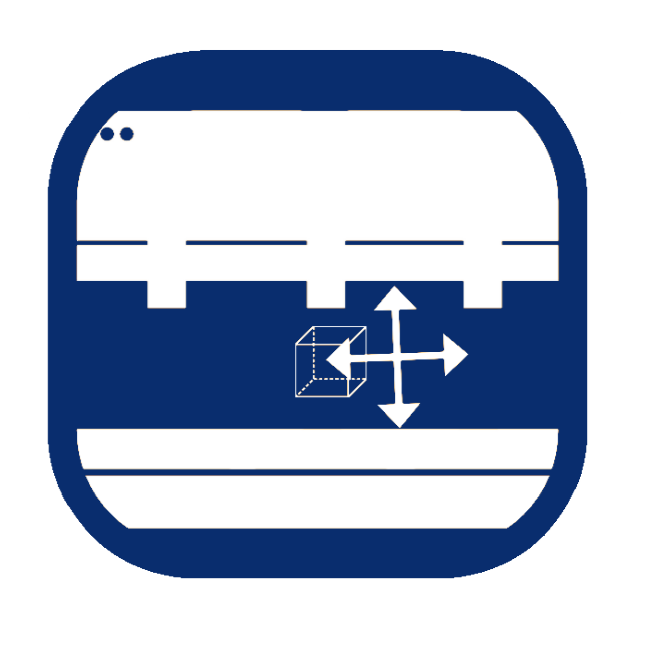The Definition of Custom Metal Stamping
Custom metal stamping is a complex metal forming technology that requires a dedicated stamping press machine and tooling. The process of custom metal stamping consists of applying pressure on different types and different specifications of metal (steel coil or sheet materials) and, through the machine punching, producing different shapes (and often very complex) parts or products in the cold material processing process.
The Process of Custom Metal Stamping
The steps involved in custom metal stamping vary depending on the complexity of the product design. The process typically begins with either a coil or sheet material being fed into the stamping machine. The material is then permanently deformed and shaped according to pre-defined specifications through a series of stations. The basic steps of custom metal stamping are outlined below:
- Piercing: This step is used for positioning and guiding the material, or for punching holes in the product as required.
- Guiding: The material is guided by punches or tooling components, which lead the material move towards the stamping machine and can be coordinated correctly.
- Trimming: Depending on the product design, the material may undergo various shaping processes, including shearing, chamfering, bending, or rounding.
- Deep drawing: If the product requires cylindrical or columnar shapes with significant depth, deep drawing techniques will be utilized during tooling development.
- Blanking or cut-off: The final step is to separate the finished part from the parent material strip, which is accomplished through a process known as blanking or cut-off.
Layana's Capabilities of Custom Metal Stamping
|
Layana has an experienced tooling design and manufacturing team. Some engineers have over four decades of sheet metal stamping experience, including progressive dies, transfer dies, etc. All design development, assembly and manufacture of metal stamping were made in-house. Layana’s capabilities are listed below: |
Layana has a core team of toolmakers, some with 40 years of experience from simple dies to progressive dies, and toolings are mostly made in-house.
|
Category |
Capability |
|---|---|
|
The Maximum Size of a Tooling |
Up to 2,500mm*1,000mm*550mm |
| The Maximum Weight of a Tooling | Up to 1,200kg |
|
Range of Material Thickness |
0.02mm~6mm |
|
Tolerance Range |
Up to ±0.01mm |
|
Productivity/Month |
10 sets of dies |
|
Range of Stamping Machine |
From 25T to 300T |
Layana's Tryout Process Before Mass Production
The Advantages of Custom Metal Stamping
Compared to other similar processes such as turning, custom metal stamping has many advantages in terms of technological and economic benefits:
- Low production cost: The use of stamping machines and special tooling to produce parts is automatic and can eliminate the possibility of secondary processing.
- Low labor cost: Automatic production of metal stamping helps to reduce labor costs.
- High production efficiency: Continuous production is especially suitable for large quantities of components or products.
- High product accuracy: The use of high-precision tooling dies enables effective quality control and manufactured parts with good rigidity and dimensional stability.
- Short production time: Compared to other manufacturing processes, metal stamping helps to reduce production time and provide relatively accurate delivery.
The Limitations of Custom Metal Stamping
- Quantity: The custom metal stamping process requires a stamping machine and special tooling to produce parts, making it suitable for mass production. If parts are needed in small quantities, the cost of using metal stamping may be much higher than other processes.
- Technical requirements: Depending on the product design, such as varying material thickness, other processes like forging or extrusion may be required before the custom metal stamping process.
- Equipment cost: The cost of purchasing stamping machines is high and varies depending on the tonnage of the machines.
- Tooling preparation time: Tooling development can take time since the complexity of parts or products can determine the tooling design and construction, which may not meet urgent needs in a short period. Additionally, significant design modifications will require tooling to be redesigned and modified.
The Applications of Custom Metal Stamping Products
Products made of custom metal stamping are widely used in different industries, such as optical, medical, aerospace, Automotive, automobile, and electronic products, etc. However, for small and precise parts, it would require a specific type of metal stamping – micro stamping. Applications of Custom Metal Stamping are shown below
- Home appliance or electronic products - Many parts were made by metal stamping in electronic devices and computers - springs, lead frames, terminals, etc.
- Automobile parts such as seat rails
- Medical-related products: metal parts for brain wave detectors
- Sleeves on PCBs
- Electric car chargers: internal parts
- Household goods: chopsticks, spoons, and other tableware
- Military and defense supplies: firearms parts
- Other products, such as aerospace, automobile industry, optical industry, power electronics, also have stamping parts.
The Materials for Custom Metal Stamping
The selection of materials for custom metal stamping varies depending on the characteristics and features of the products. Therefore, the selection of the material for the product will be evaluated according to the demand, material characteristics, and cost. For example, material ductility, hardness, electrical conductivity, complexity of the product, etc. Generally speaking, the most commonly used materials are as follows:
- Stainless steel
- Ferrous alloy
- Aluminum
- Beryllium copper
- Brass
- Bronze
- Cold rolled steel
- Copper
- Titanium, etc.
The Types of Custom Metal Stamping
Stamping technology can be divided into single-die stamping, compound dies stamping, transfer die stamping, and progressive die stamping based on their features -
- Single Die Stamping
Single-die stamping uses individual dies to achieve a single feature and completes a single action, such as bending, cutting, or stretching, in the forming process using only one station. Single-process stamping is the most common and simplest type of metal stamping, but it has low production efficiency for complex work. - Compound Die Stamping
Compound dies are suitable for completing multiple stations on a single die. For example, the stamping process is immediately followed by the finishing process, which consistently provides good quality with repetitive processes. Multiple steps, such as cutting, bending, and punching, can be performed simultaneously in the same die. The parts can be produced without multiple dies, which can effectively save costs. However, compound die stamping can only be used for simple and geometrical products. - Transfer Die Stamping
Transfer die stamping is especially used for deep drawing parts. After the part is separated from the sheet metal, the tooling moves back to its original position to make another one while the first one moves to the next stamping station. Transfer dies allow multiple parts to be made at the same time and are suitable for mass production. In addition, since the parts are not connected to the sheet material during forming, the punch can be made as deep as possible according to the product requirements, making transfer die stamping especially suitable for products with deep-drawn features. - Progressive Stamping
Progressive stamping is a process in which sheet material is fed into an automatic feeding mechanism and the product is completed in a single, multiple-station tool. The part passes through multiple stations in a predefined sequence and is subsequently formed. Throughout the process, the part remains attached to the metal strip and moves horizontally on the stamping machine with the automatic feeder mechanism, stopping at each station and using the upper die holder's force to cut out the shape in the tooling die. Progressive stamping is suitable for producing geometrically complex and tight tolerance parts in large quantities, effectively reducing labor costs and ensuring that identical parts are produced.
Not Sure About Which Type of Stamping Die Is Right for Your Project?
Layana Company has solid R&D teams that can provide you the best solution to make your products. We have more than 4 decades of experience designing multi-station dies and will help you address which type of multi-station die will fit your project and proficiently design and develop the required tooling and equipment for efficient and precise manufacturing. We are IATF 16949, ISO 50001 and ISO 14064 certified global leading OEMs manufacturer that specializes not only in metal stamping but also plastic injection, insert molding, and assembly which positioned Layana as a key ally in executing highly complex projects.
Contact us at layana@layana.com




